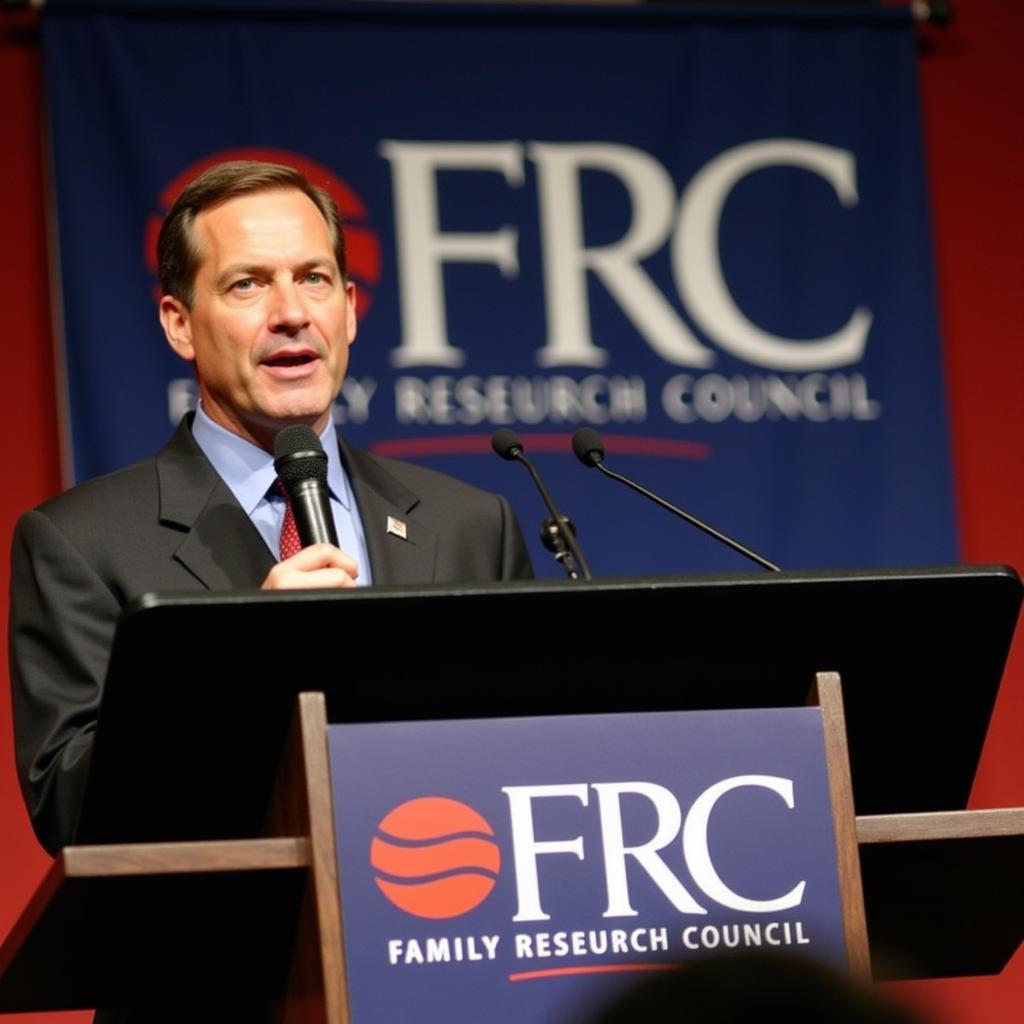The Family Research Council (FRC) and its president, Tony Perkins, are prominent figures in the American political landscape, particularly regarding social conservative advocacy. This article delves into the organization’s history, influence, and the role of Tony Perkins in shaping its agenda.
Understanding the Family Research Council’s Mission
The FRC, founded in 1983, defines itself as a Christian organization promoting faith, family, and freedom in public policy and culture. Its stated mission is to advance faith, family, and freedom in public policy and the culture from a Christian worldview. The organization focuses on issues like abortion, religious liberty, and LGBTQ+ rights, often taking stances that spark public debate. Their work involves lobbying, research, and public advocacy, aiming to influence legislation and public opinion.
Tony Perkins: The Face of the FRC
Tony Perkins has served as president of the FRC since 2003. His leadership has been instrumental in shaping the organization’s direction and influence. Before joining the FRC, Perkins served in the Louisiana state legislature and worked as a police officer. He brings a blend of political experience and strong religious convictions to his role. Perkins frequently appears in the media, representing the FRC’s views on various social and political issues. His public appearances and pronouncements have significantly shaped the organization’s public image and contributed to its prominence within conservative circles.
 Tony Perkins speaking at a Family Research Council event
Tony Perkins speaking at a Family Research Council event
Key Policy Positions of the Family Research Council
The FRC actively engages in policy debates on a wide range of issues. Their stances often reflect a conservative Christian worldview. For example, the FRC strongly opposes abortion rights, advocating for legal protections for the unborn. They also advocate for policies protecting religious freedom, often focusing on the rights of individuals and businesses to act according to their religious beliefs. Additionally, the FRC has taken positions on LGBTQ+ issues, such as opposing same-sex marriage and advocating for what they consider to be religious freedom exemptions.
The Family Research Council’s Influence and Impact
The FRC’s influence extends beyond its lobbying efforts. Through its research publications, the organization aims to provide data and analysis supporting its policy positions. These publications are often cited by conservative policymakers and commentators. Moreover, the FRC hosts regular events and conferences, providing a platform for conservative voices and networking opportunities for activists and policymakers. Their annual Values Voter Summit attracts prominent figures within the Republican party.
Criticisms and Controversies Surrounding the FRC
The FRC’s stances on various issues have drawn criticism from LGBTQ+ advocacy groups and other organizations. Some critics have accused the organization of promoting discriminatory views and contributing to a climate of intolerance. The Southern Poverty Law Center has designated the FRC as an anti-LGBTQ+ hate group, citing its rhetoric and policy positions. This designation has been contested by the FRC, sparking a debate about the definition and application of the term “hate group.”
What is the Family Research Council’s stance on abortion?
The FRC firmly opposes abortion, advocating for legal protections for the unborn at all stages of pregnancy.
What is the Family Research Council’s annual budget?
The FRC’s annual budget fluctuates, but it typically operates with tens of millions of dollars, funded primarily through private donations.
Who founded the Family Research Council?
The FRC was founded by James Dobson in 1983.
Is Tony Perkins still the president of the Family Research Council?
Yes, Tony Perkins remains the president of the FRC.
In conclusion, the Family Research Council, under the leadership of Tony Perkins, plays a significant role in advocating for socially conservative policies in the United States. Their positions on issues like abortion, religious liberty, and LGBTQ+ rights continue to be the subject of ongoing public debate. The organization remains a powerful force within conservative political circles, influencing policy discussions and shaping public discourse. If you need more information, contact us at Phone Number: 0904826292, Email: research@gmail.com Or visit us at: No. 31, Alley 142/7, P. Phú Viên, Bồ Đề, Long Biên, Hà Nội, Việt Nam. We have a 24/7 customer service team.
FAQ
- What is the Family Research Council’s primary focus? Promoting faith, family, and freedom in public policy and culture from a Christian worldview.
- Who is the current president of the FRC? Tony Perkins.
- How does the FRC try to influence policy? Through lobbying, research, public advocacy, and media appearances.
- What are some of the key issues the FRC addresses? Abortion, religious liberty, and LGBTQ+ rights.
- Where is the FRC headquartered? Washington D.C.
- What is the Values Voter Summit? An annual conference hosted by the FRC that attracts prominent conservative figures.
- What are some criticisms of the FRC? Critics accuse the FRC of promoting discriminatory views and intolerance.
You might also be interested in reading our other articles on religious freedom, conservative activism, and political lobbying. We encourage you to explore our website for more in-depth information and analysis on these topics.